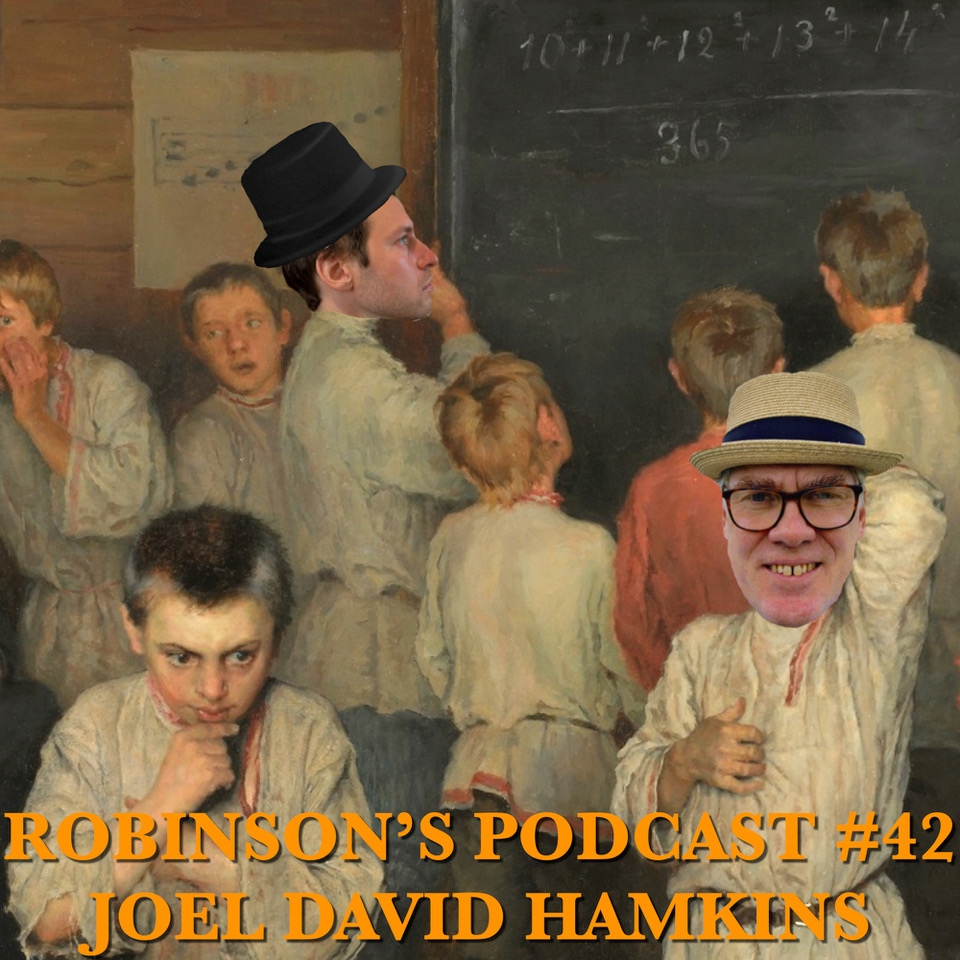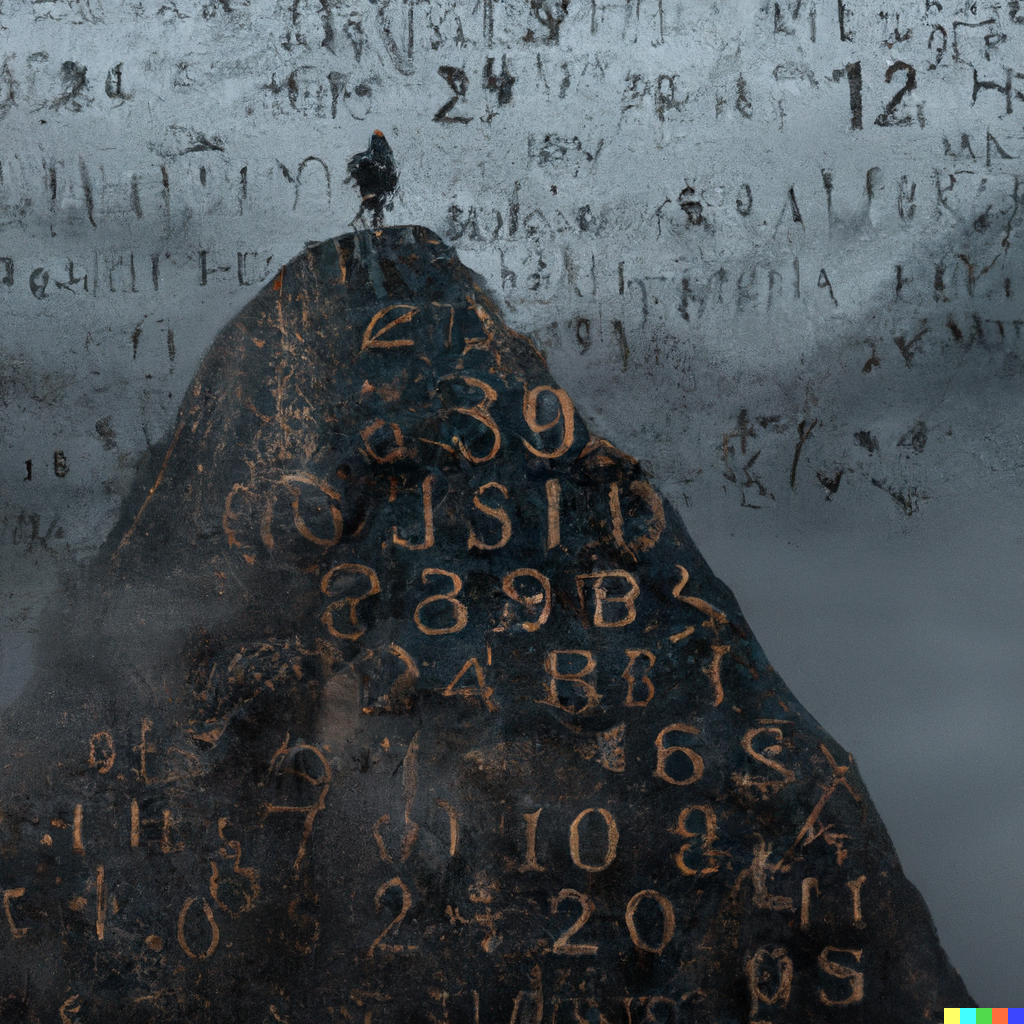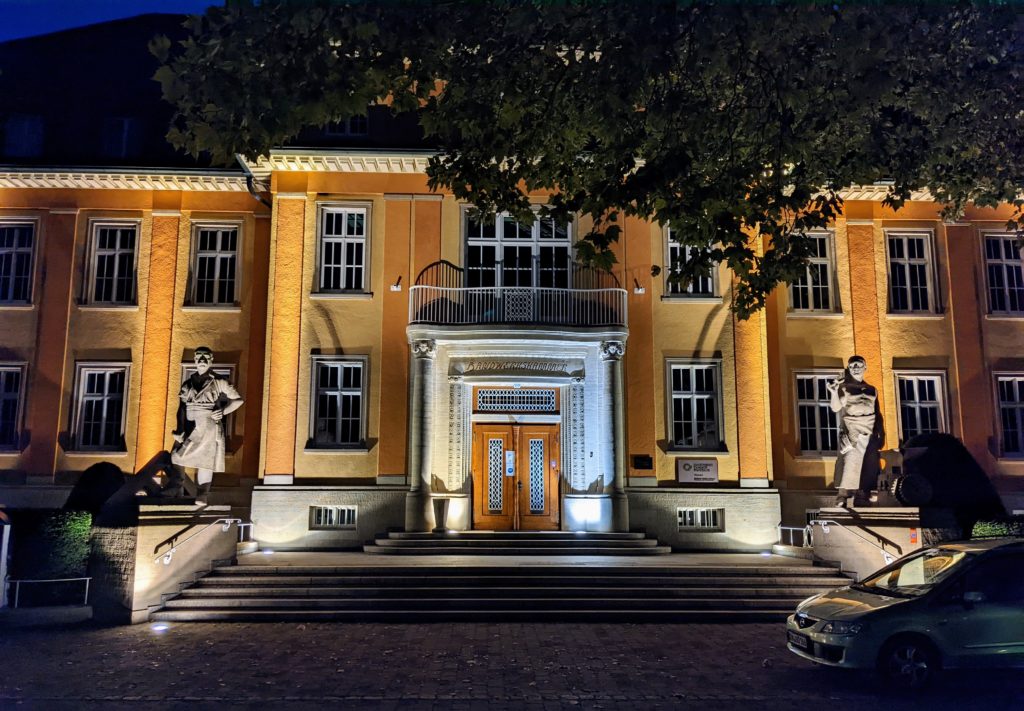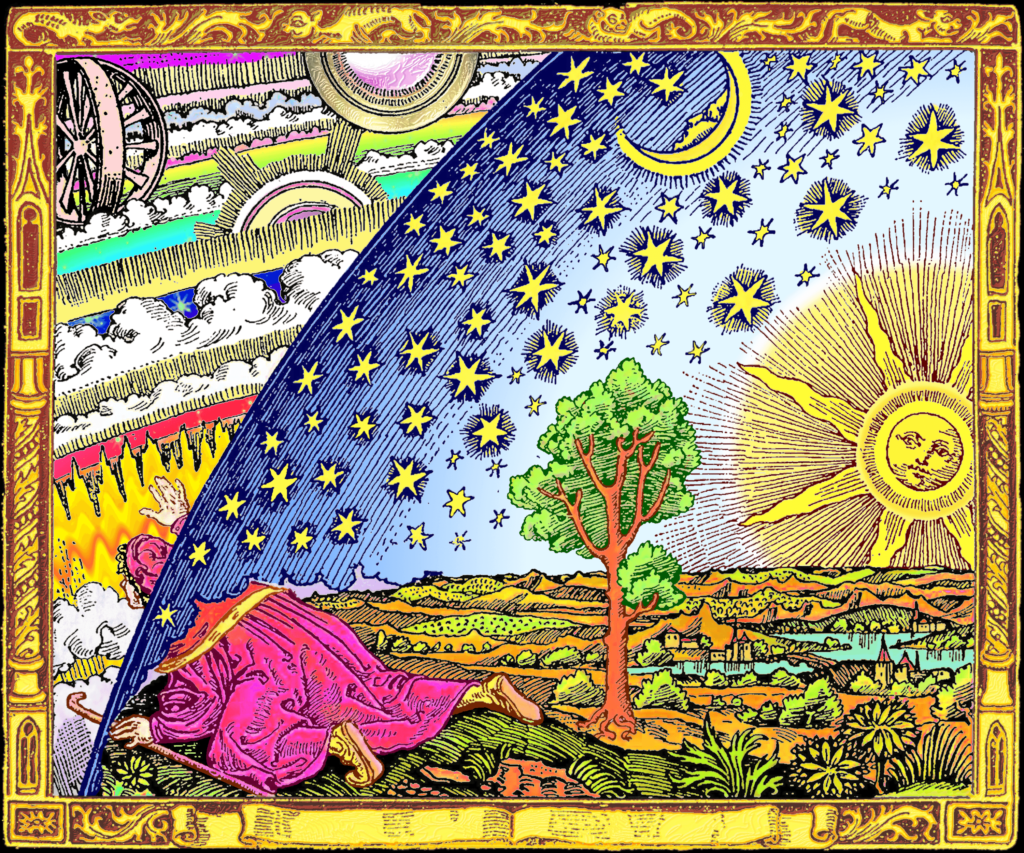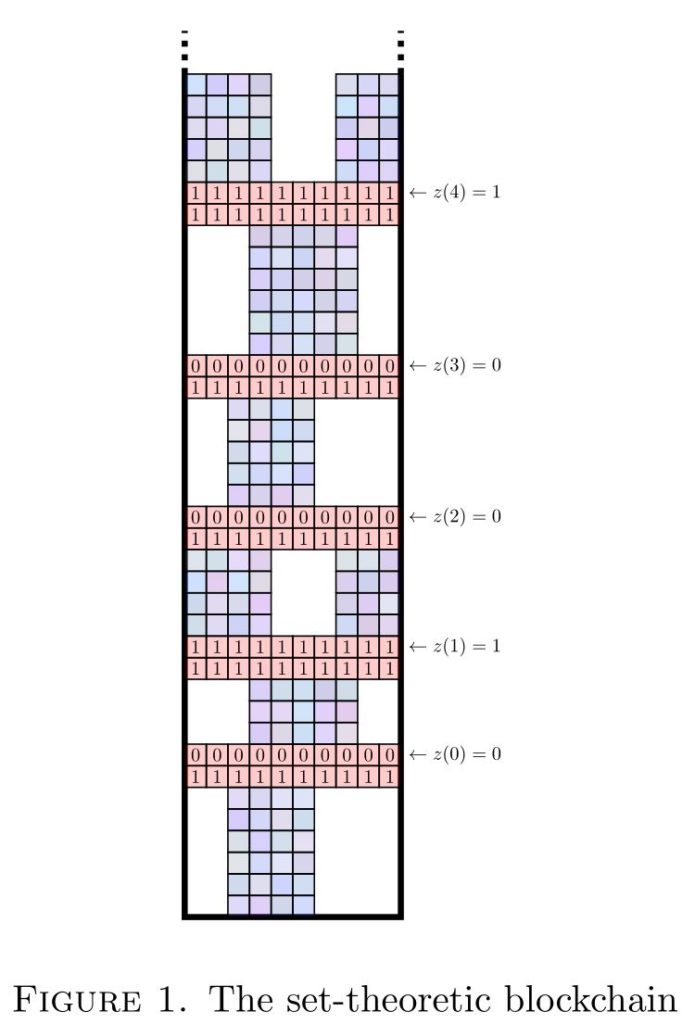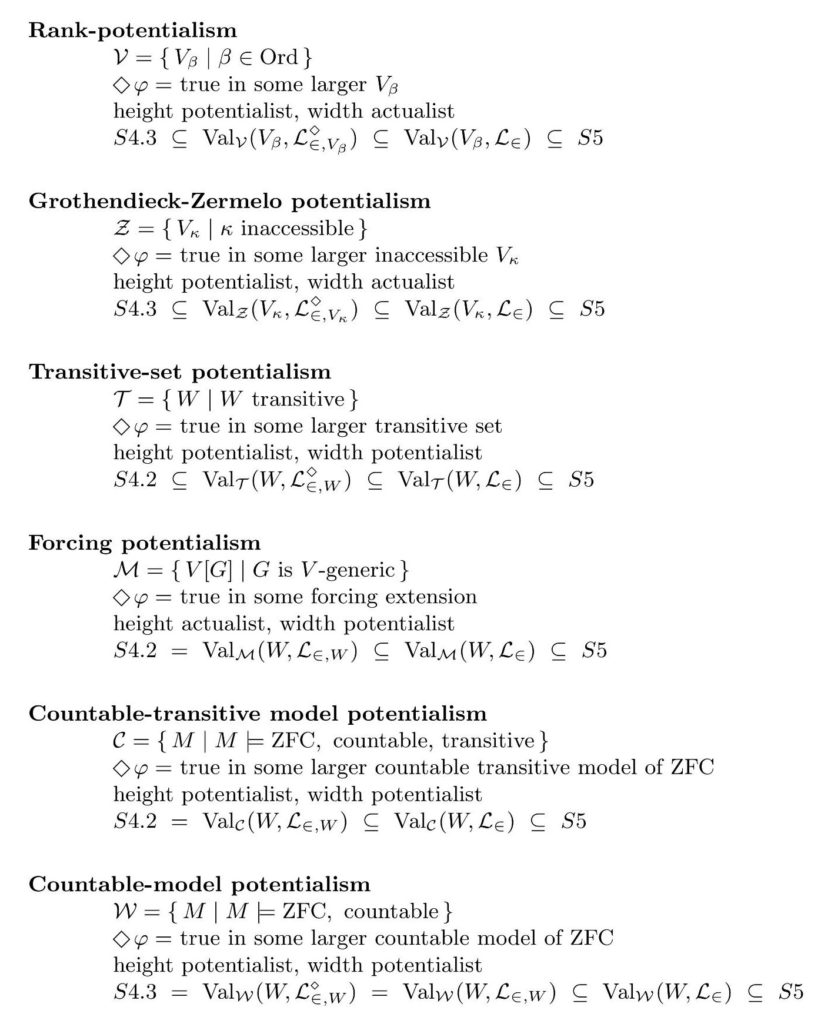 $\newcommand\HOD{\text{HOD}}$The axiom $V=\HOD$, introduced by Gödel, asserts that every set is ordinal definable. This axiom has a subtler foundational aspect than might at first be expected. The reason is that the general concept of “object $x$ is definable using parameter $p$” is not in general first-order expressible in set theory; it is of course a second-order property, which makes sense only relative to a truth predicate, and by Tarski’s theorem, we can have no first-order definable truth predicate. Thus, the phrase “definable using ordinal parameters” is not directly meaningful in the first-order language of set theory without further qualification or explanation. Fortunately, however, it is a remarkable fact that when we allow definitions to use arbitrary ordinal parameters, as we do with $\HOD$, then we can in fact make such qualifications in such a way that the axiom becomes first-order expressible in set theory. Specifically, we say officially that $V=\HOD$ holds, if for every set $x$, there is an ordinal $\theta$ with $x\in V_\theta$, for which which $x$ is definable by some formula $\psi(x)$ in the structure $\langle V_\theta,{\in}\rangle$ using ordinal parameters. Since $V_\theta$ is a set, we may freely make reference to first-order truth in $V_\theta$ without requiring any truth predicate in $V$. Certainly any such $x$ as this is also ordinal-definable in $V$, since we may use $\theta$ and the Gödel-code of $\psi$ also as parameters, and note that $x$ is the unique object such that it is in $V_\theta$ and satisfies $\psi$ in $V_\theta$. (Note that inside an $\omega$-nonstandard model of set theory, we may really need to use $\psi$ as a parameter, since it may be nonstandard, and $x$ may not be definable in $V_\theta$ using a meta-theoretically standard natural number; but fortunately, the Gödel code of a formula is an integer, which is still an ordinal, and this issue is the key to the issue.) Conversely, if $x$ is definable in $V$ using formula $\varphi(x,\vec\alpha)$ with ordinal parameters $\vec\alpha$, then it follows by the reflection theorem that $x$ is defined by $\varphi(x,\vec\alpha)$ inside some $V_\theta$. So this formulation of $V=HOD$ is expressible and exactly captures the desired second-order property that every set is ordinal-definable.
$\newcommand\HOD{\text{HOD}}$The axiom $V=\HOD$, introduced by Gödel, asserts that every set is ordinal definable. This axiom has a subtler foundational aspect than might at first be expected. The reason is that the general concept of “object $x$ is definable using parameter $p$” is not in general first-order expressible in set theory; it is of course a second-order property, which makes sense only relative to a truth predicate, and by Tarski’s theorem, we can have no first-order definable truth predicate. Thus, the phrase “definable using ordinal parameters” is not directly meaningful in the first-order language of set theory without further qualification or explanation. Fortunately, however, it is a remarkable fact that when we allow definitions to use arbitrary ordinal parameters, as we do with $\HOD$, then we can in fact make such qualifications in such a way that the axiom becomes first-order expressible in set theory. Specifically, we say officially that $V=\HOD$ holds, if for every set $x$, there is an ordinal $\theta$ with $x\in V_\theta$, for which which $x$ is definable by some formula $\psi(x)$ in the structure $\langle V_\theta,{\in}\rangle$ using ordinal parameters. Since $V_\theta$ is a set, we may freely make reference to first-order truth in $V_\theta$ without requiring any truth predicate in $V$. Certainly any such $x$ as this is also ordinal-definable in $V$, since we may use $\theta$ and the Gödel-code of $\psi$ also as parameters, and note that $x$ is the unique object such that it is in $V_\theta$ and satisfies $\psi$ in $V_\theta$. (Note that inside an $\omega$-nonstandard model of set theory, we may really need to use $\psi$ as a parameter, since it may be nonstandard, and $x$ may not be definable in $V_\theta$ using a meta-theoretically standard natural number; but fortunately, the Gödel code of a formula is an integer, which is still an ordinal, and this issue is the key to the issue.) Conversely, if $x$ is definable in $V$ using formula $\varphi(x,\vec\alpha)$ with ordinal parameters $\vec\alpha$, then it follows by the reflection theorem that $x$ is defined by $\varphi(x,\vec\alpha)$ inside some $V_\theta$. So this formulation of $V=HOD$ is expressible and exactly captures the desired second-order property that every set is ordinal-definable.
Consider next the axiom $V=\HOD(b)$, asserting that every set is definable from ordinal parameters and parameter $b$. Officially, as before, $V=\HOD(b)$ asserts that for every $x$, there is an ordinal $\theta$, formula $\psi$ and ordinals $\vec \alpha<\theta$, such that $x$ is the unique object in $V_\theta$ for which $\langle V_\theta,{\in}\rangle\models\psi(x,\vec\alpha,b)$, and the reflection argument shows again that this way of defining the axiom exactly captures the intended idea.
The axiom I actually want to focus on is $\exists b\,\left( V=\HOD(b)\right)$, asserting that the universe is $\HOD$ of a set. (I assume ZFC in the background theory.) It turns out that this axiom is constant throughout the generic multiverse.
Theorem. The assertion $\exists b\, (V=\HOD(b))$ is forcing invariant.
- If it holds in $V$, then it continues to hold in every set forcing extension of $V$.
- If it holds in $V$, then it holds in every ground of $V$.
Thus, the truth of this axiom is invariant throughout the generic multiverse.
Proof. Suppose that $\text{ZFC}+V=\HOD(b)$, and $V[G]$ is a forcing extension of $V$ by generic filter $G\subset\mathbb{P}\in V$. By the ground-model definability theorem, it follows that $V$ is definable in $V[G]$ from parameter $P(\mathbb{P})^V$. Thus, using this parameter, as well as $b$ and additional ordinal parameters, we can define in $V[G]$ any particular object in $V$. Since this includes all the $\mathbb{P}$-names used to form $V[G]$, it follows that $V[G]=\HOD(b,P(\mathbb{P})^V,G)$, and so $V[G]$ is $\HOD$ of a set, as desired.
Conversely, suppose that $W$ is a ground of $V$, so that $V=W[G]$ for some $W$-generic filter $G\subset\mathbb{P}\in W$, and $V=\HOD(b)$ for some set $b$. Let $\dot b$ be a name for which $\dot b_G=b$. Every object $x\in W$ is definable in $W[G]$ from $b$ and ordinal parameters $\vec\alpha$, so there is some formula $\psi$ for which $x$ is unique such that $\psi(x,b,\vec\alpha)$. Thus, there is some condition $p\in\mathbb{P}$ such that $x$ is unique such that $p\Vdash\psi(\check x,\dot b,\check{\vec\alpha})$. If $\langle p_\beta\mid\beta<|\mathbb{P}|\rangle$ is a fixed enumeration of $\mathbb{P}$ in $W$, then $p=p_\beta$ for some ordinal $\beta$, and we may therefore define $x$ in $W$ using ordinal parameters, along with $\dot b$ and the fixed enumeration of $\mathbb{P}$. So $W$ thinks the universe is $\HOD$ of a set, as desired.
Since the generic multiverse is obtained by iteratively moving to forcing extensions to grounds, and each such movement preserves the axiom, it follows that $\exists b\, (V=\HOD(b))$ is constant throughout the generic multiverse. QED
Theorem. If $V=\HOD(b)$, then there is a forcing extension $V[G]$ in which $V=\HOD$ holds.
Proof. We are working in ZFC. Suppose that $V=\HOD(b)$. We may assume $b$ is a set of ordinals, since such sets can code any given set. Consider the following forcing iteration: first add a Cohen real $c$, and then perform forcing $G$ that codes $c$, $P(\omega)^V$ and $b$ into the GCH pattern at uncountable cardinals, and then perform self-encoding forcing $H$ above that coding, coding also $G$ (see my paper on Set-theoretic geology for further details on self-encoding forcing). In the final model $V[c][G][H]$, therefore, the objects $c$, $b$, $P(\omega)^V$, $G$ and $H$ are all definable without parameters. Since $V\subset V[c][G][H]$ has a closure point at $\omega$, it satisfies the $\omega_1$-approximation and cover properties, and therefore the class $V$ is definable in $V[c][G][H]$ using $P(\omega)^V$ as a parameter. Since this parameter is itself definable without parameters, it follows that $V$ is parameter-free definable in $V[c][G][H]$. Since $b$ is also definable there, it follows that every element of $\HOD(b)^V=V$ is ordinal-definable in $V[c][G][H]$. And since $c$, $G$ and $H$ are also definable without parameters, we have $V[c][G][H]\models V=\HOD$, as desired. QED
Corollary. The following are equivalent.
- The universe is $\HOD$ of a set: $\exists b\, (V=\HOD(b))$.
- Somewhere in the generic multiverse, the universe is $\HOD$ of a set.
- Somewhere in the generic multiverse, the axiom $V=\HOD$ holds.
- The axiom $V=\HOD$ is forceable.
Proof. This is an immediate consequence of the previous theorems. $1\to 4\to 3\to 2\to 1$. QED
Corollary. The axiom $V=\HOD$, if true, even if true anywhere in the generic multiverse, is a switch.
Proof. A switch is a statement such that both it and its negation are necessarily possible by forcing; that is, in every set forcing extension, one can force the statement to be true and also force it to be false. We can always force $V=\HOD$ to fail, simply by adding a Cohen real. If $V=\HOD$ is true, then by the first theorem, every forcing extension has $V=\HOD(b)$ for some $b$, in which case $V=\HOD$ remains forceable, by the second theorem. QED



